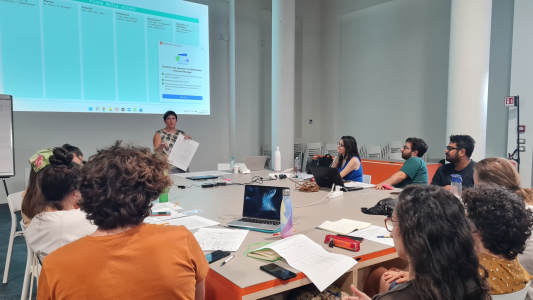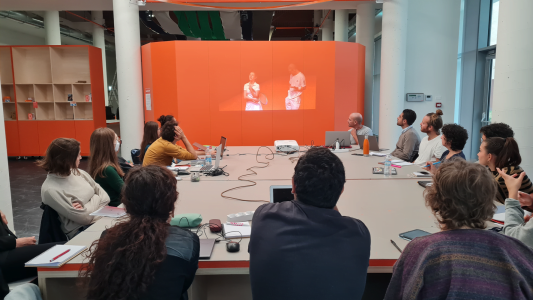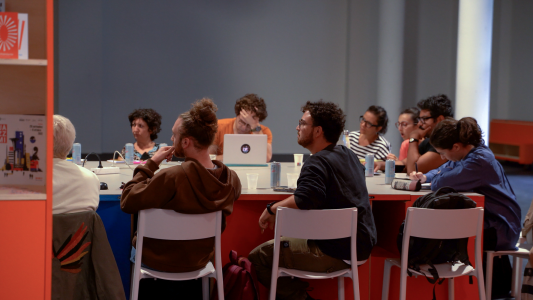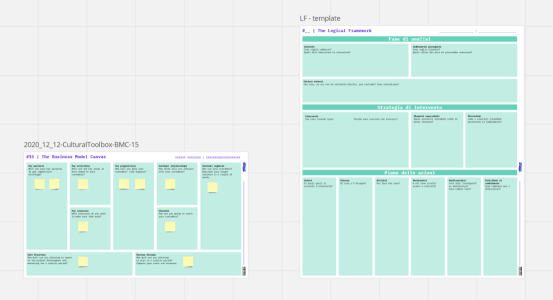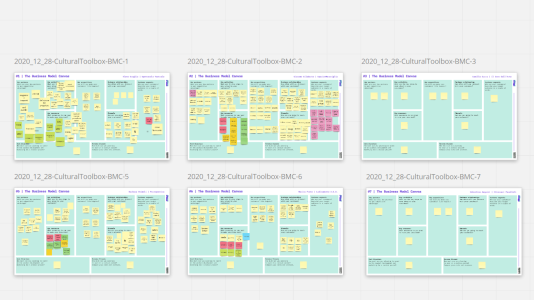2019-2023 @Ecate Cultura
Cultural Toolbox
#service design
#project management
What did I do?
Introducing design thinking to adopt a user-centred approach
Producing learning materials to guarantee consistency
////////////////////////////////////////////////////////////////////////////////////////////////////////////////////////////////////////////////////////////////////////////////////////////////////////////////////////////////////////////////////////////////////////////////////////////////////////////////////////////////////////////////////////////////////////////////////////////////////////////////////////////////////////////////////
Small and micro cultural organisations need specialised training in project design and innovation strategies
The Italian artistic sector is dominated by small, micro organizations with a focus on skills for artistic production, often overlooking the need for managers, innovators, communicators, and non-artistic workers, limiting the entities’ innovative potential. Even for those who acknowledge the need for these new skill sets, investing in training is complex: how to choose between expensive courses of very distant disciplines?
- Desk research around innovation in the cultural sector
- Survey for mapping the post-covid training needs
Priority should be given to training courses characterised by an open, ‘portfolio’ model, combining knowledge, skills, competences and capacities aimed at strategic planning, design, communication , management…
Cultural professions and training 2021 - C. San Paolo Foundation
Courses are usually structured for bigger organisations, making it difficult to implement innovative practices in everyday tasks for small realities
Specialized training proposals often require significant time and budget investments, making them unsustainable for small enterprises. These trainings often teach practices suitable for larger organizations, leaving small entities to adapt to their multitasking reality: learning materials often end up in shared folders waiting for the right opportunity to be implemented.
- Benchmark of training proposals at the national level
- Knowledge exchange with sector experts
- Value proposition scoping workshop between partners
Envisioning a training proposal composed of workshops on different topics enables each entity to invest in the specific skills needed, making training more accessible.
The Cultural Toolbox is a flexible training proposal designed to suit different skill needs and budgets. Each workshop provides a vertical perspective on a specific topic, theoretical references, and tools for participants to test on their projects. The whole workshop portfolio provides a foundation to foster innovation in the cultural sector, leaving learners with in-depth sources and actionable practices.
- Pilot to test the workshop structure and tools
- 6 modular workshops created
- 5 editions of Cultural Toolbox realised
Participant in two CT workshops - 2022 edition
Long story short
Challenges
> Finding data about small cultural enterprises in Italy was extremely hard: we came up with our own survey for the lack of more reliable studies.
> Keeping the experience consistent between editions and partners: we developed a framework with a workshop structure and guidelines to be followed.
> Creating a balanced learning curve that could suit different experience levels: iterating on feedback allowed us to verify our assumptions.
Organisations
People
Josephine Magliozzi, Sara Carmagnola, Federica Paladini, Marco Finardi
Challenges
> Finding data about small cultural enterprises in Italy was extremely hard: we came up with our own survey for the lack of more reliable studies.
> Keeping the experience consistent between editions and partners: we developed a framework with a workshop structure and guidelines to be followed.
> Creating a balanced learning curve that could suit different experience levels: iterating on feedback allowed us to verify our assumptions.

